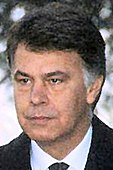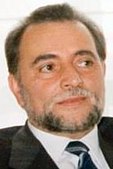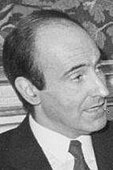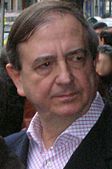
Back Eleccions generals espanyoles de 1993 Catalan Parlamentswahl in Spanien 1993 German Elecciones generales de España de 1993 Spanish 1993ko Espainiako hauteskunde orokorrak Basque Élections générales espagnoles de 1993 French Eleccións xerais de España de 1993 Galician Elezioni generali in Spagna del 1993 Italian 1993年スペイン総選挙 Japanese Wybory parlamentarne w Hiszpanii w 1993 roku Polish Eleições gerais na Espanha em 1993 Portuguese
| |||||||||||||||||||||||||||||||||||||||||||||||||||||||||||||||||||||||||||||||||||||||||||||||||||||
All 350 seats in the Congress of Deputies and 208 (of 256) seats in the Senate 176 seats needed for a majority in the Congress of Deputies | |||||||||||||||||||||||||||||||||||||||||||||||||||||||||||||||||||||||||||||||||||||||||||||||||||||
|---|---|---|---|---|---|---|---|---|---|---|---|---|---|---|---|---|---|---|---|---|---|---|---|---|---|---|---|---|---|---|---|---|---|---|---|---|---|---|---|---|---|---|---|---|---|---|---|---|---|---|---|---|---|---|---|---|---|---|---|---|---|---|---|---|---|---|---|---|---|---|---|---|---|---|---|---|---|---|---|---|---|---|---|---|---|---|---|---|---|---|---|---|---|---|---|---|---|---|---|---|---|
| Opinion polls | |||||||||||||||||||||||||||||||||||||||||||||||||||||||||||||||||||||||||||||||||||||||||||||||||||||
| Registered | 31,030,511 | ||||||||||||||||||||||||||||||||||||||||||||||||||||||||||||||||||||||||||||||||||||||||||||||||||||
| Turnout | 23,718,816 (76.4%) | ||||||||||||||||||||||||||||||||||||||||||||||||||||||||||||||||||||||||||||||||||||||||||||||||||||
| |||||||||||||||||||||||||||||||||||||||||||||||||||||||||||||||||||||||||||||||||||||||||||||||||||||
| |||||||||||||||||||||||||||||||||||||||||||||||||||||||||||||||||||||||||||||||||||||||||||||||||||||
The 1993 Spanish general election was held on Sunday, 6 June 1993, to elect the 5th Cortes Generales of the Kingdom of Spain. All 350 seats in the Congress of Deputies were up for election, as well as 208 of 256 seats in the Senate.
The Spanish Socialist Workers' Party under Felipe González achieved the largest number of votes and seats for the fourth consecutive time, though it lost the absolute majority it had held in both chambers of the Cortes since 1982. In contrast, José María Aznar's People's Party won a large share of the vote, thus increasing their seats in both the Congress and the Senate and consolidating its position as the main opposition party. For the first time since 1979, the election brought in a hung parliament, forcing the governing PSOE to seek the support of nationalist groups in order to renew its mandate and secure a fourth term in government.
In the aftermath of the election, the PSOE saw itself under increased pressure due both to political instability as a result of its low majority (relying on increasingly unstable pacts with Convergence and Union to pass its legislation) and of the uncovering of numerous cases of corruption within the government itself. The pact with CiU would end in the fall of 1995, forcing González to call early elections 15 months before their scheduled date, which would see the opposition People's Party win for the first time.
Cite error: There are <ref group=lower-alpha> tags or {{efn}} templates on this page, but the references will not show without a {{reflist|group=lower-alpha}} template or {{notelist}} template (see the help page).
© MMXXIII Rich X Search. We shall prevail. All rights reserved. Rich X Search








